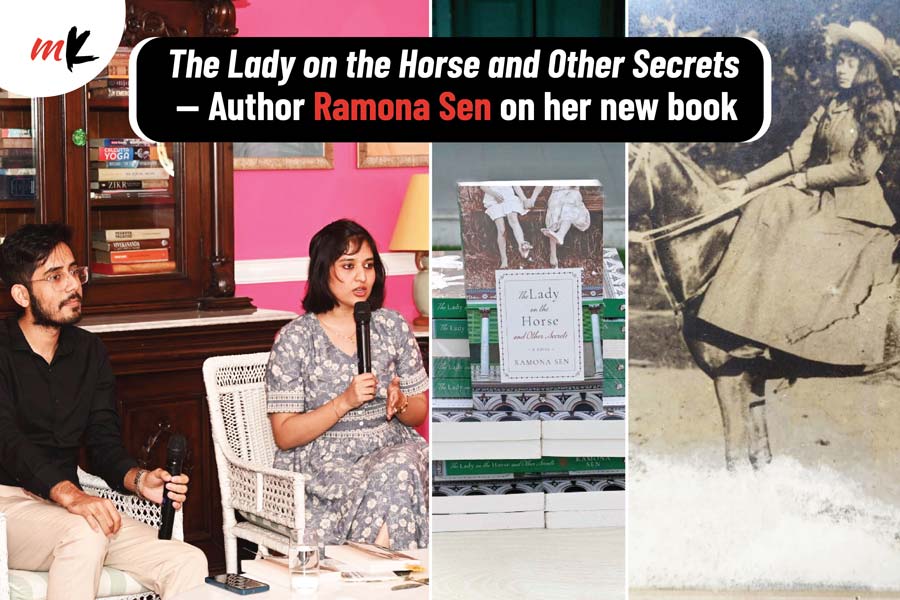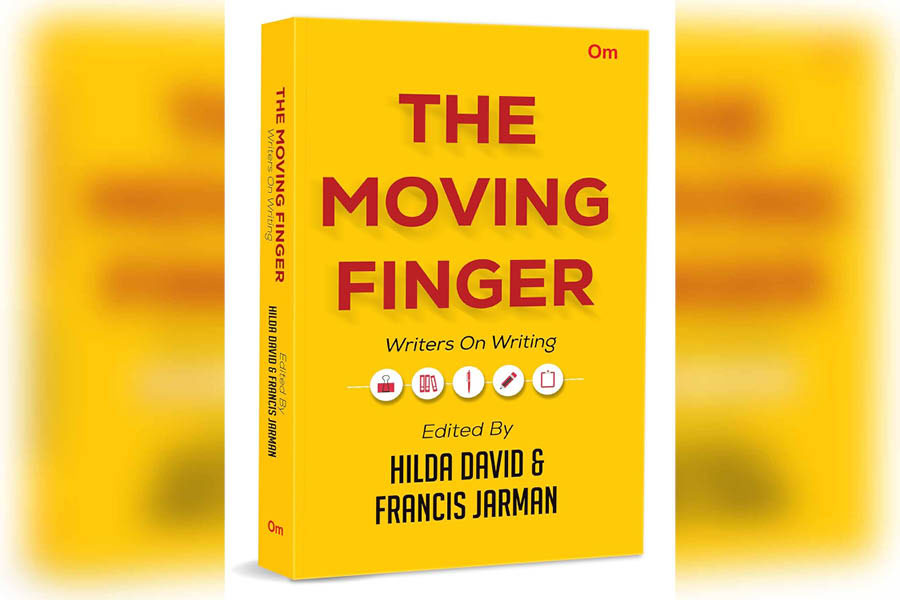Most readers and writers are, by nature, solitary creatures. Rarely will you find them out and about in the middle of a weekday. A much higher possibility is finding them scribbling or typing away furiously at their desks, or huddled in some dimly lit corner, engrossed in their current unputdownable. However, on the evening of June 15, birds of a feather flocked to The Red Bari, where Om Books International and Speaking Tiger Books had organised an interactive session called “The Moving Finger and Other Writing Secrets” with editors Shantanu Ray Chaudhuri and Maitreyee B. Chowdhury in conversation with Ramona Sen, author of The Lady on the Horse and Other Secrets.
The talk that ensued was rich in information and insights as the panellists, with years of experience in the world of books behind them, broke down and analysed the nitty-gritties of writing, publishing and sustaining a career as an author. Here are some of the questions and answers from the talk for anyone who is looking to publish, wants to write, or just harbours a plain and simple love for all things books:
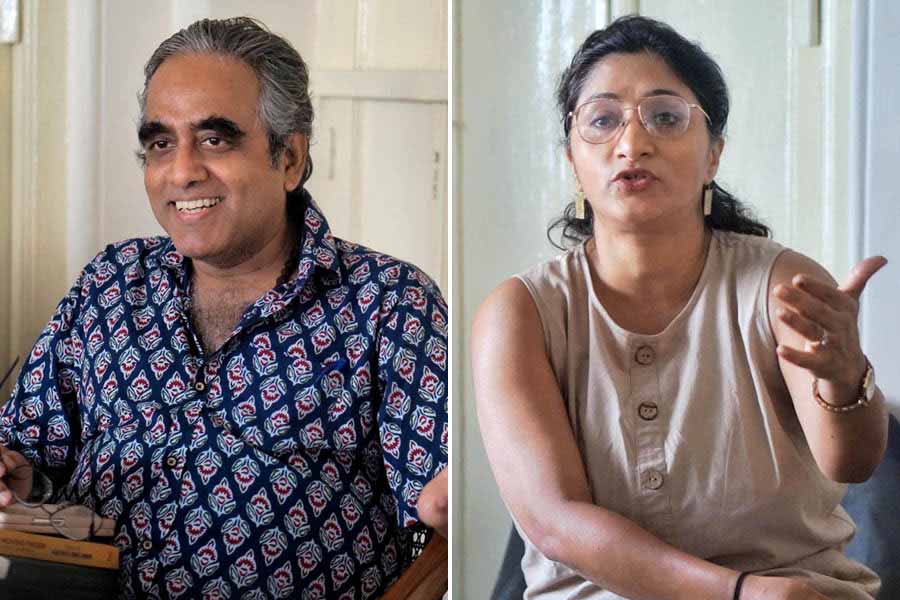
(R) Maitreyee, author of ‘The Hungryalists’, and editor at The Bangalore Review; (L) Shantanu, editor in chief of Om Books International Soumyajit Dey
For a first-time author, how do you go about selecting a publisher?
Just as much as writers need publishers, so do publishers need good writers. When it comes to publishing, you must remember that there is no “one size fits all”. “The first step to take is to recognise the genre that your manuscript falls into, and then choose to approach a publisher that you think may be the best representative of your writing,” said Shantanu. For example, if your writing leans towards academic or research-oriented topics, consider Oxford University Press or an Orient Black Swan. For broader fiction, HarperCollins, Penguin, and Simon & Schuster are notable options.
Are big international houses the be-all and end-all for an author searching for a publisher?
Simply put — no. Big houses that roll off the tips of tongues hold the false guarantee of propulsion towards bestsellers. According to the panel, the important thing to ask yourself at the time of choosing your publisher is: How does a particular publisher approach my book? India abounds with small to mid-sized publishers, and many first-time authors benefit from taking their books to these houses instead. A smaller house will often provide more detailed and thorough editing, and they tend to care deeply about your work.
Do some genres of fiction sell better than others?
Mass market fiction, and in particular, crime fiction, tend to sell well, said Shantanu. However, this is not to say that aspiring writers should limit themselves to this niche. It’s important to note that it is usually the well-established authors who dominate this market, making it difficult for first-time authors to break in successfully.
What is a book proposal, and how important is it to my submission?
A book proposal is a crucial document that you send to your publisher to make your case for why they should publish your book. “A strong proposal, typically around 700 to 800 words, should be concise and captivating. Poor proposals often end up in the ‘slush pile,’” explained Shantanu, referring to a term used to describe unsolicited manuscripts that are set aside and are unlikely to be considered.
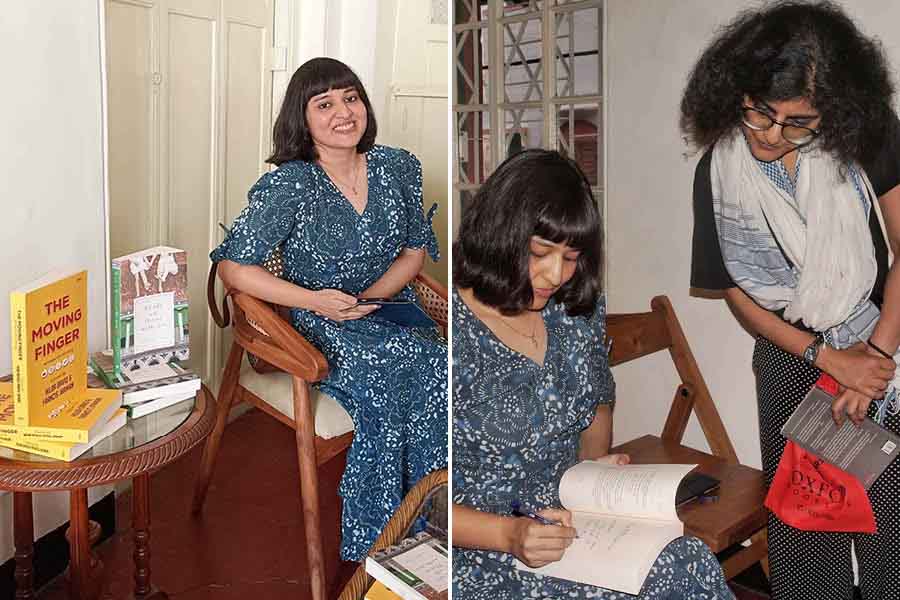
(L): Ramona, author of ‘The Lady on the Horse and Other Secrets’; (R) Ramona signs a copy of her book for an audience member Soumyajit Dey
How important is the role of the literary agent?
A literary agent acts as the go-between for an author and a publisher. “It is the agent’s role to try and sell your manuscript to the publishers,” observed the panel. It is easier to go through an agent because they know exactly which publisher is looking for which genre. Literary agents often charge a fee upfront that can be anywhere between Rs 20,000 and Rs 25,000, clarified Shantanu.
Should a writer base their writing style on what the market demands?
No, as a writer, you must remember that your job is to play to your strengths, and not try and mould yourself in accordance with the publisher. “Don’t compromise with the manuscript and make changes to it because of what you think sells better. History is full of writers such as Arthur Miller who have written books which nobody thought would get written,” said Maitreyee. Write to highlight your strengths, and stay true to your craft and inspiration.
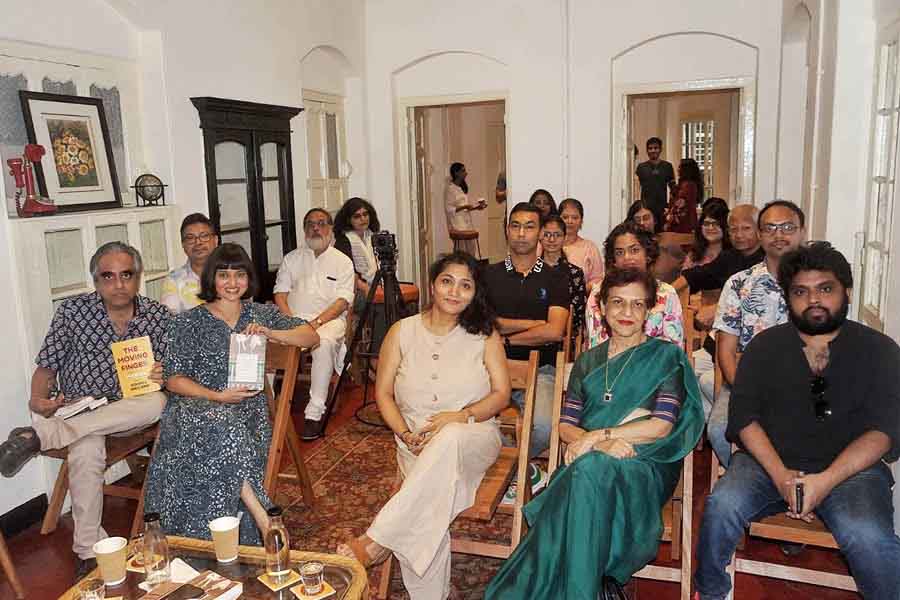
The panellists strike a smile with the members of the audience at the close of this lively interactive session Soumyajit Dey
How important are editing and fact-checking?
Publishers want manuscripts with as little editing required as possible. As a writer, you should never send off your work in a rush. “When you pitch your book to editors and agents, don’t send out the first thing that you write,” warned Ramona, talking about her experience of publishing both her novels. A general rule of thumb is to keep away your manuscript for at least a couple of weeks, send it to friends and colleagues who will give you honest feedback, and to read and reread your work as much as possible to ensure that you are submitting your very best. “Once sent, submissions cannot be retracted,” alerted Ramona.
Ramona also gave the audience a tip she had picked up from her journalism days. “Fact-check anything that is not an opinion, no matter how small. Look up photographs, municipal records, and trustworthy newspaper archives. The TimesMachine section of the The New York Times archives proved to be very useful for me.”
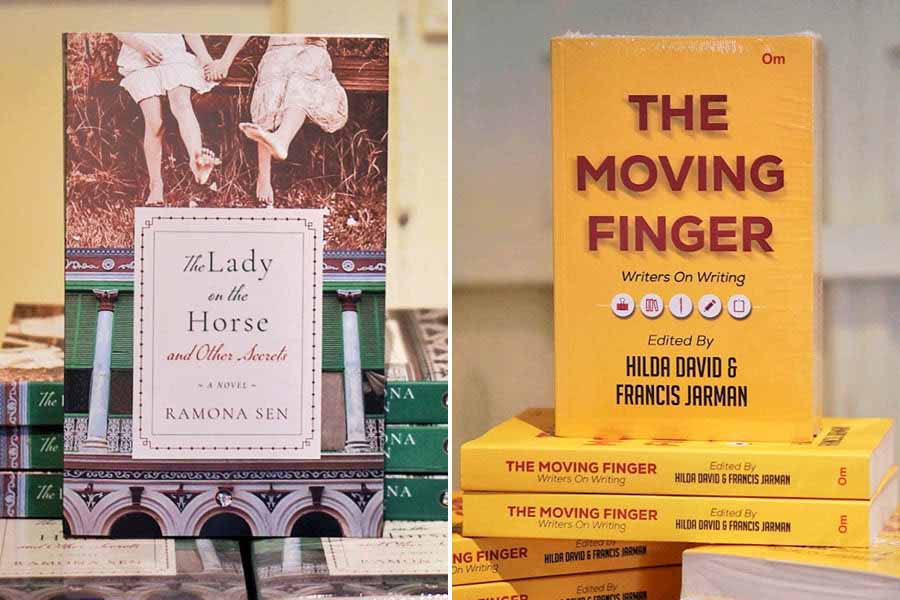
Copies of ‘The Lady on the Horse and Other Secrets’ and ‘The Moving Finger: Writers on Writing’ that were available to the audience to purchase after the even Soumyajit Dey
Is submitting to online journals as brutally competitive as submitting to mainstream publishers?
Online journals prove to be as competitive as print due to the sheer number of submissions they receive. “We receive up to 20 short stories a month, out of which we publish not more than two or three of the very best ones,” said Maitreyee, who is the editor of The Bangalore Review. Most literary magazines in India are successful, and they pay quite well. As a writer who hasn’t published yet, having a byline in any of these magazines, such as Out of Print, for example, is a good stepping stone to boost your writing resume,” added Maitreyee.
A final word of advice to aspiring writers from the panel? “Be the change you wish to see. The industry and the fraternity of literature ultimately rests on good writing and your belief in it.”
